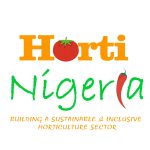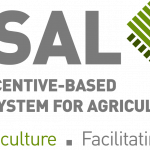HortiNigeria, a non-governmental organisation, has announced that it has trained over 70,000 farmers and mobilised £4 million since its inception in 2021 to strengthen Nigeria’s horticulture sector and stimulate economic growth.
Mr Mohammed Idris, Programme Director of HortiNigeria, made this known at the ongoing workshop for financial institutions in collaboration with the Nigeria Incentive-Based Risk Sharing System for Agricultural Lending (NIRSAL) in Abuja.
The workshop is themed “Unlocking Sustainable Finance for the Horticulture Sector”.
Idris explained that the HortiNigeria programme is funded by the Embassy of the Kingdom of the Netherlands and implemented through a consortium led by the International Fertiliser Development Centre (IFDC).
It has also supported Micro, Small and Medium Enterprises (MSMEs) with tools to aid their growth.
He emphasised that in spite of agriculture’s contribution to Nigeria’s economic growth and job creation, the sector receives less than six per cent of total commercial bank lending.
“The horticulture sub-sector, in particular, continues to suffer from neglect due to perceived risks associated with perishability, market volatility, and seasonality,” he said.
He said the four-day workshop aims to equip financial institutions to better understand and invest in horticultural value chains.
“The training is designed to equip financial institutions with practical knowledge on structuring inclusive horticulture financing products, mitigating risk, and unlocking investments for smallholder farmers and agribusinesses.
“It is expected to lead to the development of tailored financial products for horticultural enterprises, increased lending and investment in the sector, and stronger partnerships between banks and agricultural actors, all within a de-risked ecosystem supported by NIRSAL’s tools, frameworks, and guarantees,” Idris stated.
Speaking on “De-risking and Funding Mechanisms for a Rewarding and Sustainable Horticulture Sector”, Mr Sa’ad Hamidu, Managing Director of NIRSAL Plc, noted that agriculture remains the cornerstone of Nigeria’s economy.
According to him, it employs millions across rural and peri-urban communities.
Hamidu, however, acknowledged that the horticulture sub-sector, in spite its potential for high-value addition and job creation, continues to face limited access to finance, along with the broader agricultural sector.
“Agriculture contributes an estimated 24 per cent to GDP, according to the National Bureau of Statistics’ 2024 report, yet only receives about four per cent of total lending from deposit money banks, as indicated in the Central Bank of Nigeria’s Q3 2024 report,” he said.
He added that NIRSAL believes improving financial institutions’ understanding of the horticulture value chain and equipping them with the tools to assess, manage, and mitigate risks is crucial to unlocking capital and fostering growth.
“Our mission is to fix broken agricultural value chains, reduce risks across the agricultural financing spectrum, and stimulate increased bank lending to the sector.
“Through innovative instruments such as the Credit Risk Guarantee (CRG), project structuring, and technical assistance, we aim to make the sector more attractive to lenders.
“Specifically for horticulture, we recognise the need for tailored strategies due to the sector’s unique challenges. We are leveraging tools like value chain mapping and risk profiling, among others.
“Our commitment is to ensure banks approach horticulture financing not with hesitation but with informed confidence.
“By collaborating with initiatives such as HortiNigeria and leveraging NIRSAL’s risk-sharing tools, we can build a more inclusive, sustainable, and rewarding horticultural ecosystem in Nigeria”.
Mr Yusuf Dtamani, Country Director of IFDC, said the capacity-building programme aims to address a gap in Nigeria’s agricultural financing landscape.
He noted that access to formal finance remains a significant barrier, particularly in the horticulture sub-sector, in spite of agriculture’s role in the national economy and employment.
“We believe these challenges can be transformed into opportunities if financial institutions are empowered with the right knowledge, tools, and risk mitigation strategies.
“This training will enable participating institutions to better understand the business operations, dynamics, and opportunities along the horticulture value chain, from production and marketing to aggregation, processing, and logistics.
“Our collaboration with NIRSAL reflects our commitment to facilitating a sustainable flow of finance and investment into agribusiness, particularly in traditionally underserved areas,” Dtamani added.
Ms Foluso Adejoro, Policy Advisor at the Netherlands Embassy, said the Kingdom sees horticulture as a key driver of economic growth, jobs, and better nutrition.
Adejoro, however, stressed that access to finance is key to unlocking the immense potential of the sub-sector.
“Too many farmers, marketers, and entrepreneurs in this sector are working hard but remain invisible to formal finance.
“We believe that change starts with understanding, and that’s what this training is about, building bridges between the financial sector and the horticulture value chain.
“With this, banks can better understand the businesses behind the numbers, the seasons behind the cash flows, and the people behind the produce,” she added.










